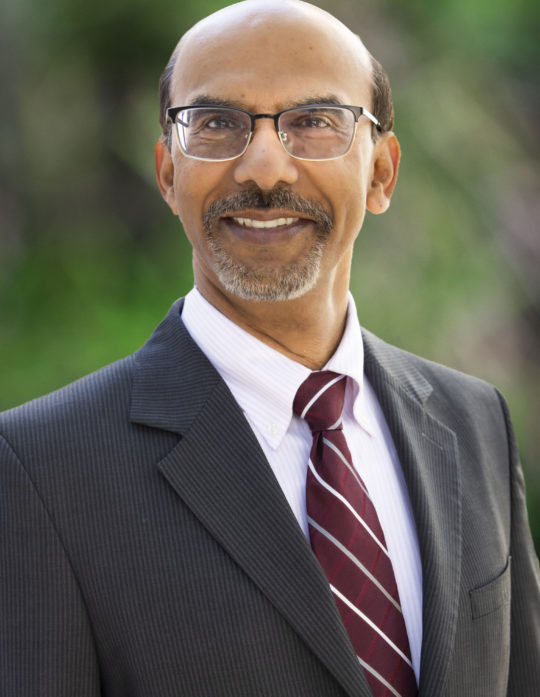Ghatu Subhash, Ph.D.
Newton C. Ebaugh Professor of Mechanical and Aerospace Engineering
Herbert Wertheim College of Engineering
2020 Awardee
Ghatu Subhash, a professor of mechanical and aerospace engineering at UF, studies how materials such as ceramics, metals and industrial-strength glass react to extreme conditions, including pressures rivaling those at the Earth’s center and temperatures higher than 2,000 degrees Fahrenheit.
By designing and testing materials against extreme pressures, temperatures, impacts, radiation and more, Subhash illuminates their structural and mechanical properties. His research helps other experts address key problems in a range of disciplines, including ecology, biology, archaeology and medicine.
“Materials are fundamental for development of every field – we can’t make machines or fly airplanes without the right materials,” he said. “They have defined human progress since the very beginning.”
Subhash, who arrived at UF in 2006, has won grants totaling over $12 million and published nearly 200 peer-reviewed research papers. He is currently the principal investigator on two grants from the U.S. Department of Defense to create materials for body armor that can protect soldiers from high-velocity bullets and a grant from the U.S. Department of Energy to build materials that can withstand nuclear reactions. He is also a co-principal investigator on a National Science Foundation grant to engineer artificial tissues that can mimic human organ functions.
He and his team have also played a key role in understanding how the walls of Castillo de San Marco, a nearly 350-year-old Spanish fort in St. Augustine made of compressed shell fragments, were able to absorb artillery fire while other structures crumbled. Their findings were featured on PBS and in Atlas Obscura in 2019.
“It’s the science that drives our curiosity,” Subhash said. “It’s fun and extremely satisfying to delve into these materials and unearth mystery behind their secrets.”
He said two mentors, first while he earned his Ph.D. from the University of California and then while he was a postdoctoral researcher at the California Institute of Technology, introduced him to the “beautiful and complex” process of discovering new properties of matter. As the director of the Department of Mechanical and Aerospace Engineering’s Laboratory for Dynamic Response of Advanced Materials, he has supervised nearly 35 Ph.D. students and 33 undergraduates.
“I love working with a diverse group of students. They bring new ideas, vitality and creativity into the scientific approaches in research,” Subhash said. “They have been pillars of my success. I owe them a lot.”
Learn more about Subhash’s work.


